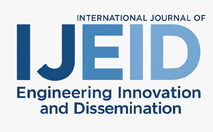IJEID Published Articles
International Journal of Engineering Innovation and Dissemination (IJEID) is a peer-reviewed, biannual journal published by VirtualRealia.Org. The journal focuses on disseminating innovative research that bridges the gap between theory and practice in engineering. IJEID welcomes high-quality contributions from various engineering disciplines, including interdisciplinary studies, that address real-world challenges, propose novel solutions, and advance engineering practices.
Development of an Instructional Manual in Electrical Installation and Maintenance for Enhancing Practical Competency in the TVL-Industrial Arts Track
This study sought to create and pilot an instructional guide particularly for the Electrical Installation and Maintenance (EIM) module of the Technical-Vocational-Livelihood (TVL) strand of Philippine senior high schools. According to the ADDIE (Analysis, Design, Development, Implementation, and Evaluation) instructional design model, the guide sought to fill practice skills training gaps by offering systematic, competency-based learning activities that are commensurate with the Training Regulations of the Technical Education and Skills Development Authority (TESDA) for National Certificate II (NC II) certification. With a descriptive-developmental mixed-methods design, the research utilized the application of EIM teachers, industry professionals, and Department of Education site supervisors to assess the manual's content validity, instructional clarity, technical accuracy, and contextual appropriateness. Quantitative data were collected through a pretest-posttest control group design to assess the student performance outcomes, and qualitative data were collected through interviews and expert validation forms. Results showed a statistically significant difference between students' posttest scores taught with the manual and those taught with conventional instructional practices. Results confirmed the value of the manual in enhancing the practical skills, electrical schematic knowledge, and certification readiness of students. Expert reaction also attested to the practicability of the manual as a tool for standardizing instruction quality improvement and supporting the skills development agenda of the Philippine K–12 program. The study recommends the integration of digital and multimedia supplements, continuous feedback among teachers and students, and targeted in-service training of teachers for maximum utilization of the manual. These enhancements are considered highly important in its mass utilization and its regular updating to evolving industry demands, thereby improving students' employability and workforce preparedness in the electrical and construction sectors.

